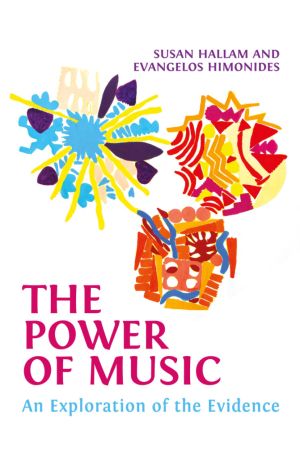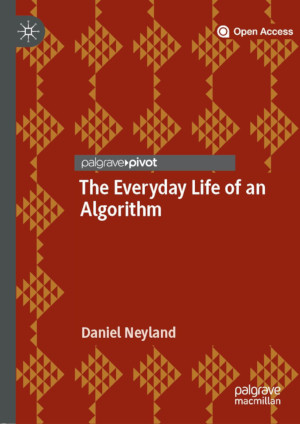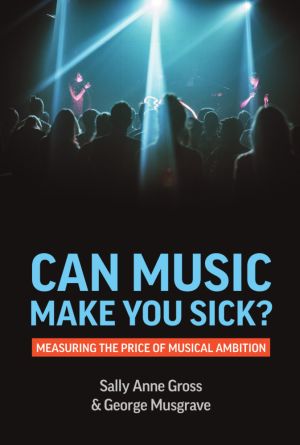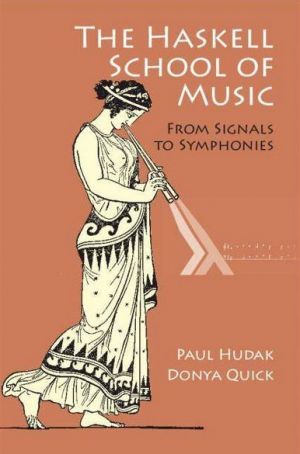The Haskell School of Music
From Signals to Symphonies
by Paul Hudak, Donya Quick
DescriptionTable of ContentsDetailsHashtagsReport an issue
Conversely, the book opens the door for programmers to interact with music by using a medium that is familiar to them. Readers will learn how to use the Euterpea library for Haskell to represent and create their own music with code, without the need for other music software.
The book explores common paradigms used in algorithmic music composition, such as stochastic generation, musical grammars, self-similarity, and real-time interactive systems. Other topics covered include the basics of signal-based systems in Haskell, sound synthesis, and virtual instrument design.
This is a textbook on functional programming in Haskell, with a strong focus on computer music concepts and applications. The book describes Euterpea, a computer music library developed in Haskell, that allows programming computer music applications both at the note level and the signal level.
The book also teaches functional programming in Haskell from scratch. It is suitable for use in the classroom to teach functional programming concepts, Haskell language details, computer music and audio processing concepts and applications - or all of the above. 






Book Description
This free book explores the fundamentals of computer music and functional programming through the Haskell programming language. Functional programming is typically considered difficult to learn. This introduction in the context of creating music will allow students and professionals with a musical inclination to leverage their experience to help understand concepts that might be intimidating in more traditional computer science settings.Conversely, the book opens the door for programmers to interact with music by using a medium that is familiar to them. Readers will learn how to use the Euterpea library for Haskell to represent and create their own music with code, without the need for other music software.
The book explores common paradigms used in algorithmic music composition, such as stochastic generation, musical grammars, self-similarity, and real-time interactive systems. Other topics covered include the basics of signal-based systems in Haskell, sound synthesis, and virtual instrument design.
This is a textbook on functional programming in Haskell, with a strong focus on computer music concepts and applications. The book describes Euterpea, a computer music library developed in Haskell, that allows programming computer music applications both at the note level and the signal level.
The book also teaches functional programming in Haskell from scratch. It is suitable for use in the classroom to teach functional programming concepts, Haskell language details, computer music and audio processing concepts and applications - or all of the above.
This open book is licensed under a Creative Commons License (CC BY). You can download The Haskell School of Music ebook for free in PDF format (4.1 MB).
Table of Contents
Chapter 1
Computer Music, Euterpea, and Haskell
Chapter 2
Simple Music
Chapter 3
Polymorphic & Higher-Order Functions
Chapter 4
A Musical Interlude
Chapter 5
Syntactic Magic
Chapter 6
More Music
Chapter 7
Qualified Types and Type Classes
Chapter 8
Interpretation and Performance
Chapter 9
Self-Similar Music
Chapter 10
Proof by Induction
Chapter 11
An Algebra of Music
Chapter 12
L-Systems and Generative Grammars
Chapter 13
Random Numbers ... and Markov Chains
Chapter 14
From Performance to Midi
Chapter 15
Basic Input/Output
Chapter 16
Higher-Order Types and Monads
Chapter 17
Musical User Interface
Chapter 18
Sound and Signals
Chapter 19
Euterpea's Signal Functions
Chapter 20
Spectrum Analysis
Chapter 21
Additive and Subtractive Synthesis
Chapter 22
Amplitude and Frequency Modulation
Chapter 23
Physical Modelling
Chapter 24
Sound Effects
Appendix A
The PreludeList Module
Appendix D
Haskell's Standard Type Classes
Appendix C
Built-in Types Are Not Special
Appendix D
Pattern-Matching Details
Book Details
Title
The Haskell School of Music
Subject
Computer Science
Publisher
Cambridge University Press
Published
2014
Pages
441
Edition
1
Language
English
ISBN13 Digital
9781108416757
ISBN10 Digital
1108416756
PDF Size
4.1 MB
License

Related Books

Building on her earlier work, The Power of Music: A Research Synthesis of the Impact of Actively Making Music on the Intellectual, Social and Personal Development of Children and Young People, this volume by Susan Hallam and Evangelos Himonides is an important new resource in the field of music education, practice, and psychology. A well signposted...

Part of the AHRC/British Library Academic Book of the Future Project, this book interrogates current and emerging contexts of academic books from the perspectives of thirteen expert voices from the connected communities of publishing, academia, libraries, and bookselling....

This book begins with an algorithm - a set of IF...THEN rules used in the development of a new, ethical, video surveillance architecture for transport hubs. Readers are invited to follow the algorithm over three years, charting its everyday life. Questions of ethics, transparency, accountability and market value must be grasped by the algorithm in ...

This open book presents case studies of twelve organisations which the public have come to view as institutions. From the BBC to Doctors Without Borders, from the Amsterdam Concertgebouw Orchestra to CERN, this volume examines how some organisations rise to prominence and remain in high public esteem through changing and challenging times. It build...

It is often assumed that creative people are prone to psychological instability, and that this explains apparent associations between cultural production and mental health problems. In their detailed study of recording and performing artists in the British music industry, Sally Anne Gross and George Musgrave turn this view on its head.
By liste...

In the decade and a half since Napster first emerged, forever changing the face of digital culture, the claim that "internet pirates killed the music industry" has become so ubiquitous that it is treated as common knowledge. Piracy is a scourge on legitimate businesses and hard-working artists, we are told, a "cybercrime" simila...

